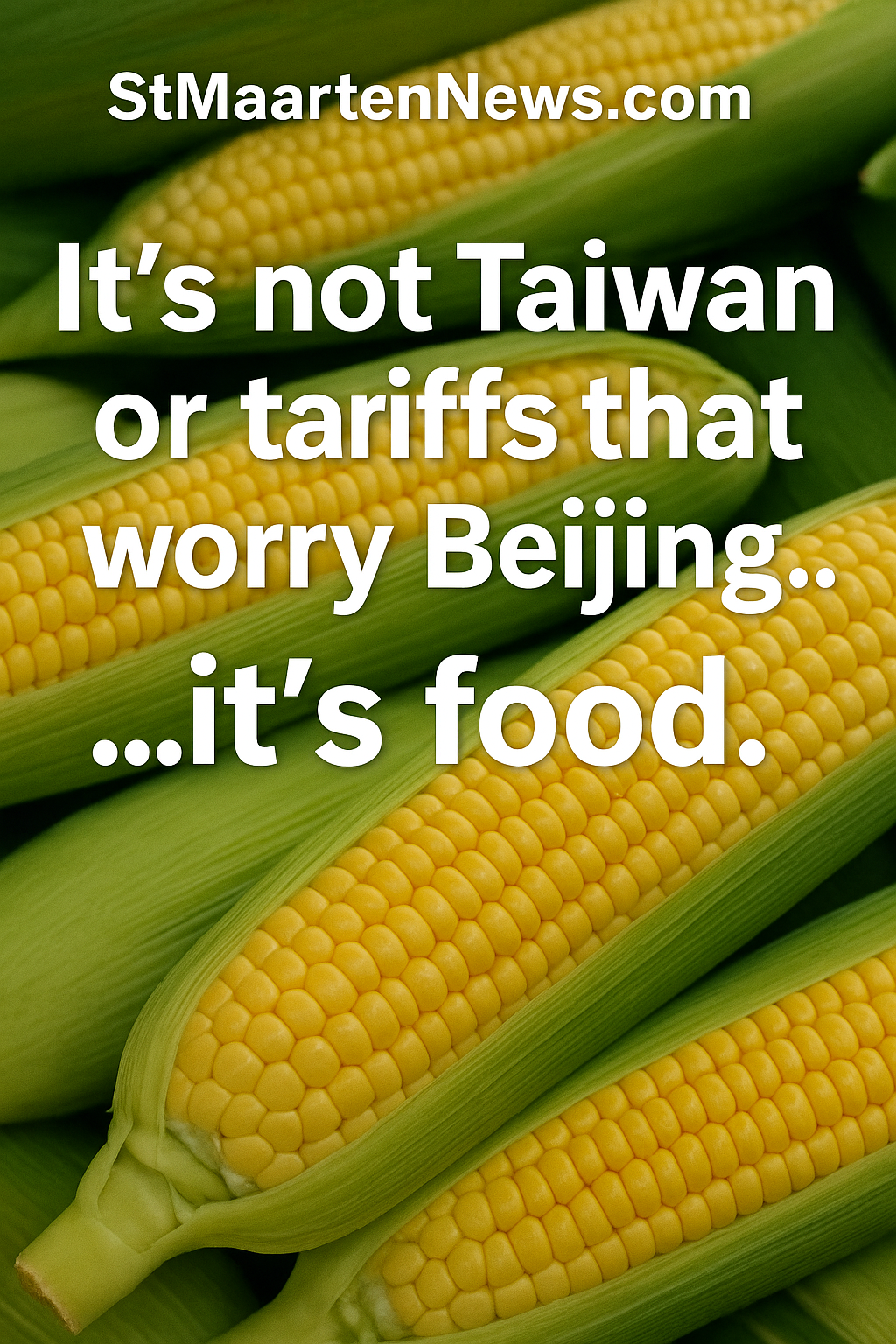~ Below is an article on the political importance of the food supply. It’s not Taiwan or tariffs that worry Beijing…it’s food. ~┬Ā

By Tom Clifford in Beijing┬Ā
ItŌĆÖs not Taiwan or the economy that keeps Chinese leaders questioning and re-questioning their mandarins. ItŌĆÖs a four-letter word that begins with f: food. Or more precisely, ensuring 1.4 billion people have enough to eat.┬Ā
Many of today’s Chinese leaders know firsthand that food shortages are not some hypothetical scenario. They have experienced what happens when that commodity is scarce.┬Ā
The countryŌĆÖs last┬Āfood crisis was the Great Famine in 1959ŌĆō1961, the largest in human history.┬Ā
This was ignited by man-made policies, ideology running rampant. The famine was a product of the Great Leap Forward, a fevered attempt to introduce a series of radical industrialization policies.┬Ā
It failed and 30 million people starved to death. Consequently Mao ZedongŌĆÖs sense of insecurity grew and he unleashed the Cultural Revolution in 1966ŌĆō1976 to shore up his support. More turmoil was unleashed in the lifetime of many of the current leadership.┬Ā┬Ā
Food security has long been a priority for China. It must feed nearly 20 per cent of the global population with less than 9 per cent of its arable land and 6 per cent of its water resources. Pollution of both land and air is still diminishing even these scarce resources.┬Ā
A food security law has been implemented. This calls for self-sufficiency in staple grains and requires local governments to include food supply in development plans.┬Ā
Political legitimacy for the ruling Communist Party may stem from the barrel of a gun but it is maintained by full rice bowls.┬ĀBetween 2013 and 2024, President Xi Jinping mentioned food security in over 450 speeches, meetings, inspections, and other official engagements.
Steady population growth along with rapid rates of industrialization and urbanization have put the country’s increasingly scarce land and water resources under more pressure. Food import dependence will increase. Between 2013 and 2019, China lost more than 5 percent of its arable land due to factors such as excess fertilizer use and neglect, according to government figures. Extreme weather, water scarcity, pollution, and climate change exacerbate the problem. Experts from the United States and China estimate that climate change and ozone pollution together reduced ChinaŌĆÖs national average crop yields by about 10 percent (fifty-five million tons per year) from 1981 to 2010. The possibility of a long trade war with the US means China has to underscore the need for food security.
Rising costs in rural areas mean that many who would be working on farms have instead headed into the cities for factory or construction work. Yes, some are returning but not as farmers. Most want to set up home-stays and tourist facilities. Few want to work the land. Put simply, itŌĆÖs back-breaking toil for little reward.┬Ā
The collective memory knows how important food has been in history┬Ā
The dynasties of imperial ChinaŌĆÖs fell in large part because natural disasters were seen as signs that rulers had squandered the mandate of heaven.┬Ā┬Ā
Peasant uprisings over ensuing food shortages led to what we now call regime change.┬Ā
COVID provided a stark reminder of how politics and food remain intertwined.┬Ā
Supply disruptions and lockdown-induced shortages showed that the political system was being openly questioned by the public. Protests, the biggest since 1989, took place in more than a dozen cities, with demonstrators chanting, ŌĆ£We want food, not COVID tests.ŌĆØ┬Ā┬Ā
As a famous Chinese proverb states:┬Ā“To the ruler, people are heaven; to the people, food is heaven.“
###
Previous article by Tom Clifford:
Xi Pinjing is purging senior military officials
###
ADVERTISEMENT
┬Ā











